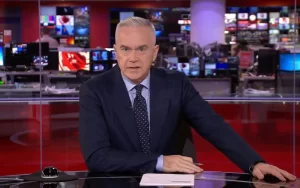
BBC Director General Tim Davie has faced tough questions about his handling of the Huw Edwards investigation.
Among the points raised by Culture Secretary Lisa Nandy were why Mr Edwards was not dismissed upon the BBC learning of his arrest and why he received a pay rise during this period.
A recent tribunal ruling has highlighted the risks of dismissing employees suspected of criminal activity.
Care assistant Jacqueline Difolco brought an unfair dismissal claim against her employer, Care UK, after being charged with murder in October 2022. The Employment Tribunal upheld her claim, stating that the company failed to properly investigate whether the charges could reasonably cause reputational damage to the organisation.
Rob McKellar, Legal Services Director at Peninsula, remarked, “The Difolco case clearly demonstrates how the law and the public interest are not always aligned. This may shed some light on the BBC’s decision to act cautiously in not dismissing Huw Edwards when they became aware of the police investigation into child pornography offences.
“Whereas in Difolco, the employee had actually been charged, albeit not convicted, in Edwards’ case the matter was still at the investigatory stage until last week.
“Had the BBC decided to dismiss Huw Edwards when it was notified of his arrest in November, it may have found itself using taxpayers’ money to defend and potentially pay out on an expensive lawsuit.
“That does not mean, however, that employers cannot dismiss for reasons of reputational damage or public interest. The law states there are five fair reasons for dismissal, and misconduct is only one of them.
“Employers can also dismiss on the grounds of ‘Some Other Substantial Reason’ (SOSR). The legal test for deciding whether an SOSR dismissal is fair is whether the employer followed a fair process and acted reasonably in reaching the conclusion it did.
“When it comes to the topic of pay, the contract of employment is key. If a contract states that when an employee is suspended it is on full pay, then they are entitled to be paid in line with that contract. Pay rises that would fall to be given during a suspension would also need to be honoured, unless there was a contractual clause stating otherwise.
“If there is any kind of wage recovery agreement that sets out pay can be deducted or claimed back, then there may be an option to do so. The employer would need to ask the employee to return the money. If they fail to do so, and there is an agreement in place that states they would need to, a claim could be pursued through the civil courts.
“Lisa Nandy has called for Huw Edwards to return his pay; it remains to be seen what course of action could be taken here.”
Read more:
Huw Edwards: new tribunal ruling sheds light on HR and employment law risks





